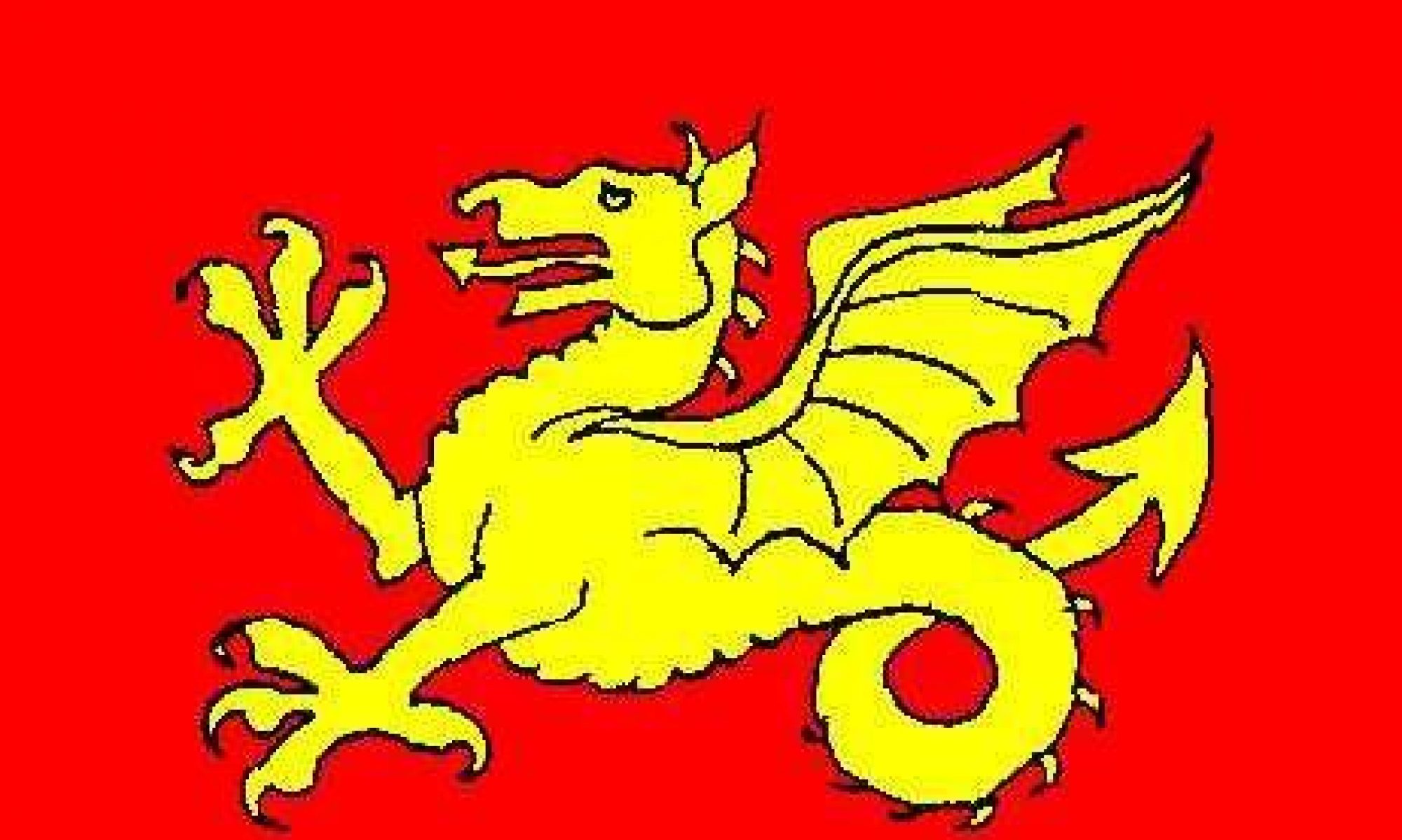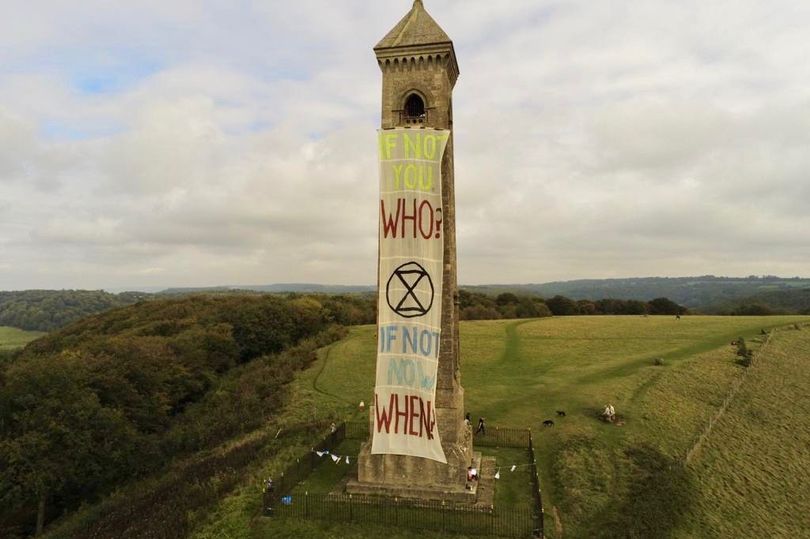The monument to William Tyndale at Nibley Knoll in Gloucestershire has been in the news this week, as Extinction Rebellion protesters chose it as the site of a gigantic banner proclaiming their message. It was chosen for its visibility from the M5, rather than its connection to Tyndale, but it nonetheless seems like a good excuse for blogging about Tyndale’s own rebellion.
On a clear day, the aforementioned monument was visible from my primary school, where we learned about Tyndale’s courage in translating the Bible into English, whereas the Church at the time didn’t want people reading the Bible at all, in case they got ideas above their station. Like much primary school history, this was a gross oversimplification, and strongly influenced by the traditional Whig view of history, in which the Protestant reformation is presented within an overall narrative of progress from the ignorance and superstition of the so-called “dark ages” to the rational enlightenment of our own era. In reality, the Church’s objections to Tyndale’s translation were a little more nuanced, as we shall see.
William Tyndale was born in Stinchcombe, Gloucestershire, around 1494. He was educated at Oxford, and became private chaplain to the family of Sir John Walsh of Little Sodbury. He soon found himself in trouble for expressing controversial, proto-Protestant views, perhaps influenced by the Lollard movement, which was strong in Gloucestershire at the time. He was summoned before the Chancellor of the Diocese of Worcester, John Bell, though no formal charges were made against him.
in 1523, he left for London to seek permission from its bishop, Cuthbert Tunstall, to translate the Bible into English. After being refused the help of the bishop, he continued his work under the patronage of cloth merchant Humphrey Monmouth. He then departed for the continent, publishing his translation of the New Testament in Germany, and the Pentateuch and Book of Jonah in the Low Countries.
His translation attracted criticism for being based on Hebrew and Greek texts, rather than the Latin Vulgate preferred by the Church at that time, and for what were regarded as numerous translation errors. Particularly controversial was the Protestant practice of referring to God as Jehovah. Whilst Tyndale didn’t think it ought to be blasphemy just saying “Jehovah”, the Catholic Church at the time preferred to translate YHWH as simply “the Lord”.
Nonetheless, Tyndale’s translation proved to be a huge influence on subsequent English versions of the Bible, including the authorised King James Bible of 1611. An analysis of the KJV made in 1988 showed that Tyndale’s words accounted for 84% of the New Testament, and 75% of the Old Testament books that he translated. He coined words that are now standard in English-speaking Christianity, such as passover, scapegoat and atonement. Among the familiar phrases that originated in Tyndale’s Bible are “the powers that be”, “salt of the earth” and “the spirit is willing, but the flesh is weak”. Melvyn Bragg, in his short biography of Tyndale, calls him the second most influential author in the English language, after Shakespeare.
Alas, Tyndale’s rebellious nature put him at odds with the church authorities of the time. Foxe’s Book of Martyrs attributes a famous quote to him, addressed to a “learned but blasphemous clergyman”, that he may or may not have actually said: “I defy the Pope, and all his laws; and if God spares my life, ere many years, I will cause the boy that driveth the plow to know more of the Scriptures than thou dost!” Thomas More in particular violently objected to Tyndale, and put a price on his head. He was eventually found by one Henry Phillips, an Englishman who had fled to the continent to escape his gambling debts, and betrayed to officers of the Holy Roman Empire. Tyndale was returned to England, tried for heresy, and burned at the stake in 1536. Three years later, the Great Bible, an English translation authorised by Henry VIII and largely based on Tyndale’s, was published.
Today, as well as the monument on Nibley Knoll, Tyndale also gives his name to Tyndale Baptist Church in Bristol, and there is a statue of him in the city’s Millennium Square. He is commemorated in the liturgical calendar of the Church of England on October 6th (had I known that before I wrote this article, I’d have tried to get it out a few days earlier!). The collect of the feast, taken from Common Worship, goes as follows:
Lord, give your people grace to hear and keep your word that, after the example of your servant William Tyndale, we may not only profess your gospel but also be ready to suffer and die for it, to the honour of your name; Amen.

